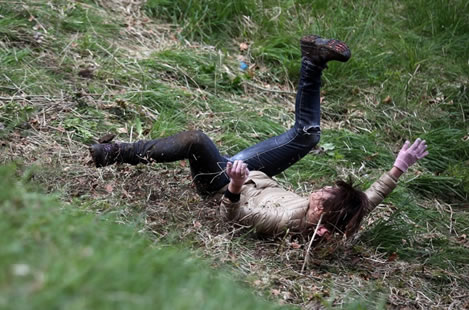Dec. 2001 Proverb: “A child (young pers on) does not fear treading on dangerous ground until he or she gets hurt (stumbles).” – Bukusu ( Kenya)
December, 2001
Mtoto haogopi kwenda mahali popote kabla hajaumia. (Swahili)
A child (young person) does not fear treading on dangerous ground until he or she gets hurt (stumbles). (English)

Bukusu (Kenya) Proverb
Background, Explanation, Meaning and Everyday Use
In the traditional African community in Kenya this proverb was used to encourage young people to heed the advice from elders. Those who were stubborn and did not listen were told this proverb. So the proverb is a kind of warning on the dangers of not listening to the advice from elders. This Kenyan proverb is part of a large cluster of African proverbs related to elders giving advice to children and youth. It is similar to the Swahili proverb Asiyesikia la mkuu huvunjika guu (The person who does not listen to an elder’s advice gets his or her leg broken).
 Biblical Parallels
Biblical Parallels
This Bukusu proverb in Kenya is similar to “The Story of the Prodigal Son” in Luke 15:11-32. Experience taught the younger son. He finally came to his senses: ” But when he came to himself he said, ‘How many of my father’s hired hands have bread enough and to spare, but here I am dying of hunger!’ I will get up and go to my father, and I will say to him, ‘Father, I have sinned against heaven and before you. I am no longer worthy to be called your son; treat me like one of your hired hands.’” (verses 17-19). He was ready to get away from the dangerous ground where he was being hurt and repent. He went back to his dear father who loved him and welcomed him back with a big party.
Contemporary Use and Religious Application
Nowadays many youths go astray because they think they know so much and they have no desire to listen to the advice of their elders. To have co-operation and smooth running of society youth should listen to their elders especially their parents and teachers. The problem is complicated these this days because some elders cannot be trusted and are not dependable.
Dr. Monica Mweseli
Nairobi, Kenya
E-mail: mmweseli@usiu.ac.ke
